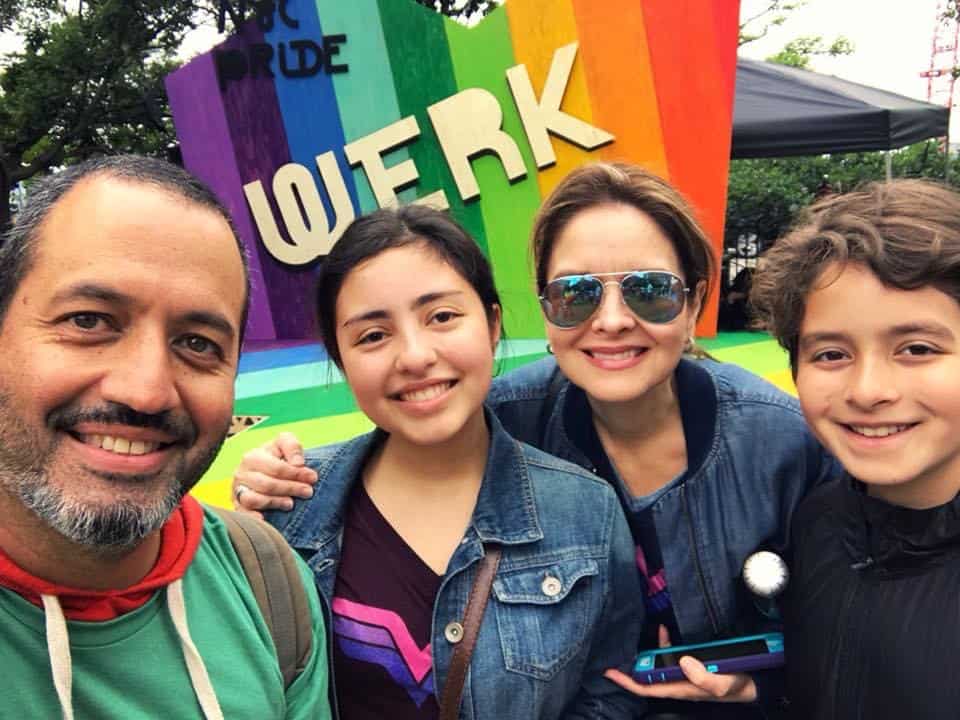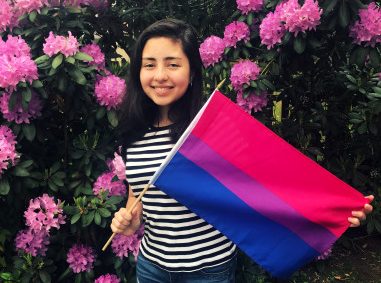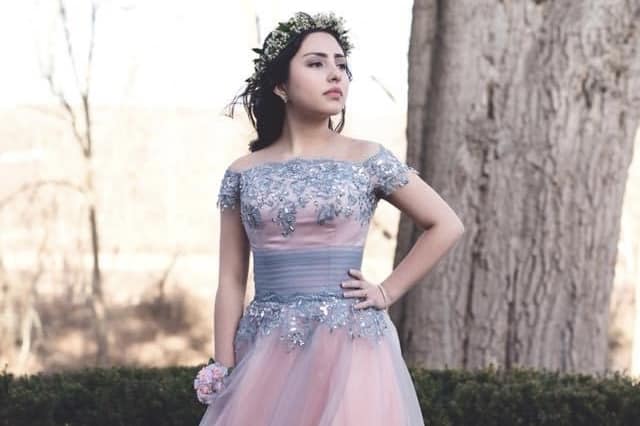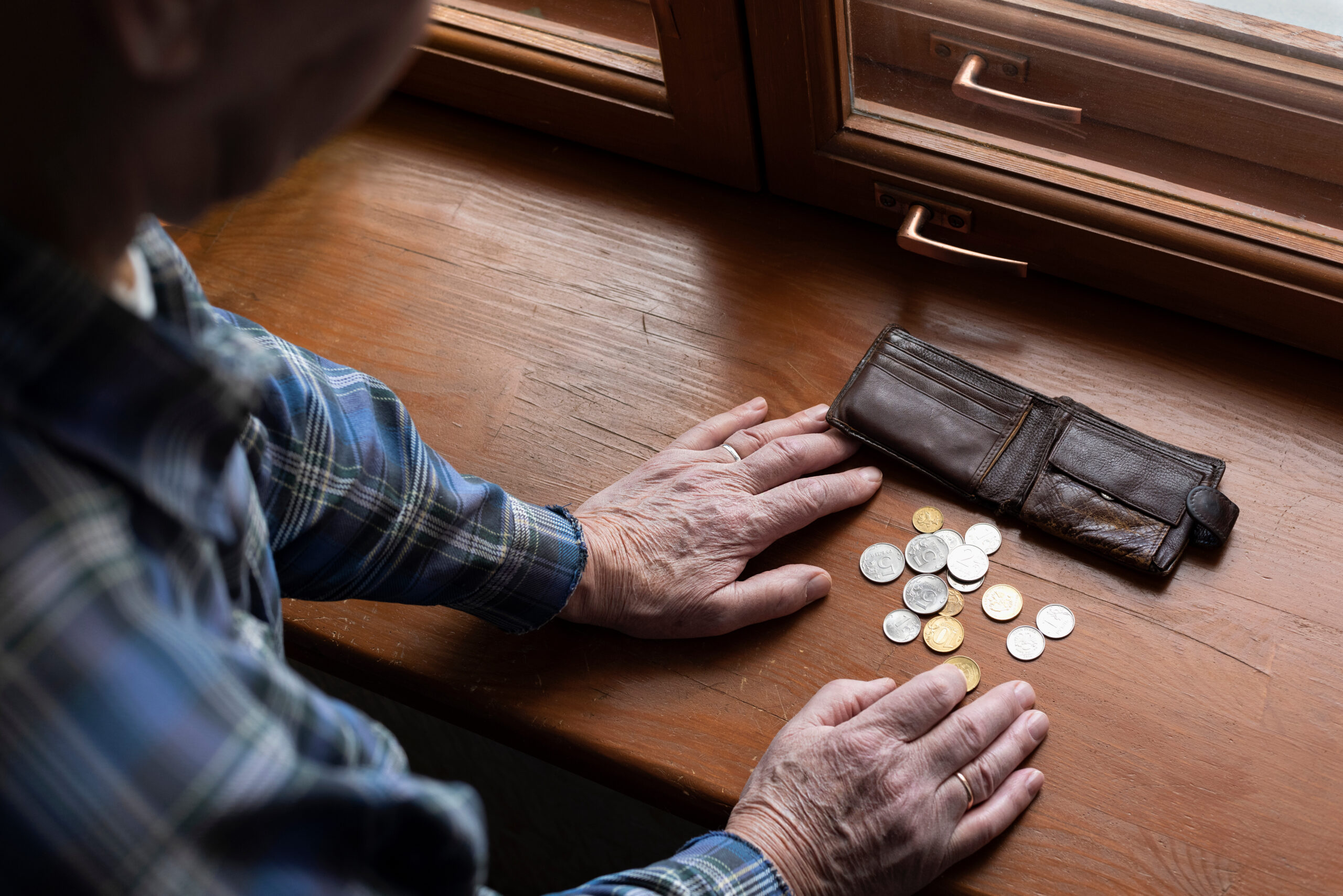“I’m bisexual”, Isabella Balta said heaving a long sigh of relief.
I literally saw the heavy weight lifting from my twelve-year-old daughter’s shoulders and quickly felt a similar weight landing on mine.
My family and I were eating out at a neighborhood restaurant, discussing the U.S. Supreme Court’s ruling in favor of marriage equality, making same-sex marriage legal across the country. The #LoveWins movement was a hot topic in the summer of 2015 that as a family we often talked about with support.
Sometime between the appetizer and main course being served, Isabella decided it was the right time to share with us she is bisexual.
My wife Adriana and I would have preferred Isabella had come out to us at home where we would talk in private, but as parents, we had learned long ago the right time and place for our children wasn’t always the right time and place for us – so we often pivoted accordingly.
June is Pride Month, celebrating the increased visibility of lesbian, gay, bisexual, transgender, and queer people (LGBTQ). I am sharing my family’s experience in the hope that it will help other families, especially Hispanics-Latinos navigate through what often is a challenging situation due to the community’s diversity including country of origin, religious beliefs, and culture.

Photo: Hugo, Isabella, Adriana, Esteban
All You Need Is Love
In a matter of seconds, I went through a barrage of emotions and grabbed on to pride and admiration. Adriana, Esteban (our son), and I celebrated Isabella’s courage and reaffirmed our love and support.
“Time and time again, we hear the same thing from patients: ‘Once my parents are behind me, I can handle anything else the world throws at me,’” Dr. Errol Lamont Fields, Johns Hopkins University School of Medicine explains. “You’re their anchor, and your acceptance is key.” In Tips for Parents of LGBTQ Youth, Dr. Fields says research shows that LGBTQ adolescents who are supported by their families grow up to be happier and healthier adults.
I had millions of questions of course, and still needed to process what had just happened, sort out my feelings, but at that moment, the most important thing for me was to blanket my daughter with love.
Let’s Talk
My wife and I have a transparent relationship with our children. They ask us a question and we answer it truthfully regardless of social taboos conditioning parents not to talk to their children (until a certain age) about subjects like sex.
By the time Isabella came out to us, we had already had the conversation about where babies come from. Still, the lesson focused on biology framed from a Papa and Mama heterosexual point of view. Now that we were talking about bisexuality in our nuclear family, I was lost.
A strong relationship with Isabella afforded me a safe space to learn. She didn’t beat up her old man too much when I asked ignorantly and at times stereotypical questions because she knew I just wanted to better understand her.
She was at an age of self-discovery and relationship building that is challenging for any adolescent, with the added difficulty of being a person of color.
“We know a lot about how parents can influence the heterosexual teen’s sexual health, but we know very little about how parents can affect the sexual health of LGBTQ teens,” said researcher Michael Newcomb, Northwestern’s Feinberg School of Medicine in an interview with the Chicago Tribune. “And in some ways, the same parenting practices would be relevant to LGBTQ teens, like talking to your kids about sex, monitoring who they’re hanging out with, who they’re dating, all those types of things.”
I know Isabella must go through life lessons’ highs and lows, but like any parent, I am protective of her and don’t want her to suffer any harm including prejudices for being bisexual.
That fear was quickly put to the test when she told me she was dating a young woman.

First Kiss
Some time had passed since Isabella came out before she started dating. I was excited and anxious when she told me about a young girl she liked during one of our Daddy, Daughter dates.
It was wonderful to listen to her speak about the person she was seeing; her excitement was written all over her face. She shared with me how they met, what they had in common, what made her special, about plans to go to the movies and a potential first kiss.
I felt comfortable giving my daughter advice about relationships but failed in warning her about the possible harassment they would face in public. There will be enough people throughout her life who will tell her what she can’t do as a bisexual woman, I wasn’t going to be one of them. Isabella was telling her Papa about an incredible life milestone and I wasn’t going to ruin her moment.
The night of her date, I was nervously waiting for her text asking me to pick her up from the movie theater. I wanted to know she had a great time and that she was safe. I worried what would happen if a bigot saw public displays of affection. Isabella finally did reach out and to my relief the night met her expectations including that first kiss.
On the way home after picking her up, I couldn’t help smiling at my daughter retelling the details of the evening with all of the excitement of a young crush. The drive home was all about chatting with my daughter about the awkwardness and wonderment of a first date.
“Be curious about their life,” advises Dr. Renata Arrington-Sanders, Associate Professor of Pediatrics, Johns Hopkins University School of Medicine. “Get to know their friends and what they like to do. Ask them how their day went and if they learned anything interesting in school. If it’s like pulling teeth at times, don’t be discouraged. Children really do want to be able to talk to parents about what’s going on in their lives.”
Quinceañera

Photo: Adriana, Isabella, Hugo, Esteban
From the start, Adriana and I discussed with Isabella a plan to share with the rest of our family that she was bisexual. The timing was completely up to Isabella; we wanted to make sure she was comfortable with telling others.
Coming out to your family can be a difficult experience, even more so if you’re part of a Hispanic-Latino family.
As a community caring deeply about family and friend relationships; LGBTQ Latinx young and old are often afraid to come out not just because of rejection, but also of not wanting to offend anyone.
That fear was shared by Isabella who was more concerned about causing rifts between family members than any individual rejecting her for being bisexual. I appreciated my daughter’s worry but reassured her that she need not compromise herself for family or anyone else. Still, there was a part of me that shared in Isabella’s dread.
I was raised as Roman Catholic and like most Hispanics-Latinos, many of my family shares that religious faith. The Church has historically had a negative attitude toward queer identities resulting in condemnation of LGBTQ communities forcing many to remain closeted.
My faith is strong without feeling I need to follow some of the more conservative teachings of the Church – I wasn’t sure the rest of my family felt the same way.
Isabella celebrated her fifteenth birthday, Quinceañera in March of 2018. The choice to host the Hispanic-Latino tradition of celebrating a young girl’s coming of age was her decision. Isabella, a third-generation Latina born in the United States made a few adjustments to the cultural celebration in order for it to best reflect her essence. Understanding that a Quinceañera symbolizes the transition from childhood to young womanhood, she decided this was the moment when she would completely come out to the world.
The plan that we adopted was for my wife and me to reach out to close family and friends (many of whom were invited to her party) to share Isabella’s story during the 2017 year-end holiday season. We would be seeing many of them between Thanksgiving and New Year’s Eve (months ahead of Isabella’s birthday), providing the right opportunity for us to share the news.
You don’t really know people until life-defining moments; I quickly found out my loved ones’ commitment to Isabella and our family. Person after person…parents, sisters, cousins, aunts, uncles, and friends was swift to send their support and love to our Isabella.
One of the proudest moments at Isabella’s Quinceañera was to see her dance surrounded by cheering family and friends as she waved a pink, lavender, and blue flag symbolizing her bisexuality.
Family support and acceptance are critical to the health and wellbeing of people who are LGBTQ. As lawmakers question the rights of transgender and gender-nonconforming youth across the country amid an ongoing pandemic, the Trevor Project reveals this already vulnerable population is at a high risk of suicide. The study finds 18-percent of Latino LGBTQ youth reported attempting suicide.
Providing support can be challenging at times. “Some parents feel so overwhelmed that they just throw up their hands and say, ‘I can’t do it.’ It’s a lot for parents to process, but don’t leave your kid in the lurch,” urges Dr. Sanders.
Don’t give up when your child needs you the most. “Remember, your child is having more difficulty with this than you are,” says Dr. Fields, “and your duty as a parent comes first.”
If you’re struggling, reach out for help to organizations like GLAD, Boston Pride, Johns Hopkins, and many more.
Love, as the Roman poet Virgil said, “Conquers all things.”
Love gave Isabella the strength to come out at the age of twelfth.
Love provided our family the foundation to learn and understand.
Love was put to the test and won.
Love Wins…then, now and always.
Hugo Balta is the Owner/Publisher of the Latino News Network and a two-term president of the National Association of Hispanic Journalists (NAHJ)
Versions of this essay were published in The Chicago Reporter, palabra., and La Raza Chicago.




